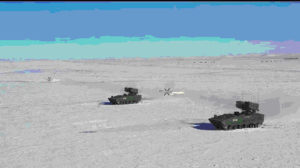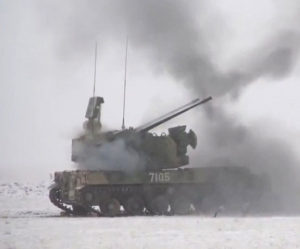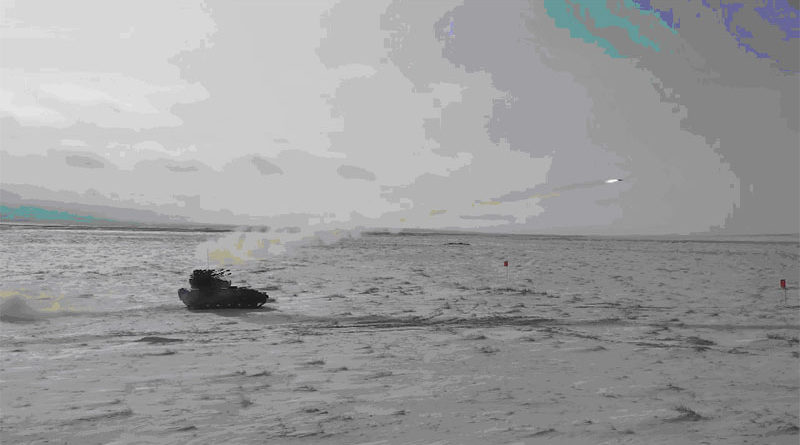Chinese People’s Liberation Army Conducts Live-fire of HQ-17 Surface-to-air Missiles
December 29, 2020
A composite brigade of the Chinese People’s Liberation Army (PLA) held a live-fire drill in temperatures as low as minus 20 degrees Celsius. The drill took place in the largest military base in China, the Zhurihe Training Base in Inner Mongolia Autonomous Region. In the drill, the brigade fired HQ-17 surface-to-air missiles. The HQ-17 (‘Red Banner-17’) is an all-weather low to medium altitude, short-range surface-to-air missile system developed by China for the People’s Liberation Army.

Although reverse engineered from the Tor-M1, the HQ-17 is not a direct copy and instead features many improvements. Unlike the Tor system, the HQ-17 incorporates an indigenous all terrain tracked launch vehicle, a new identification friend or foe (IFF) antenna on top of the search radar, an electronically scanned array radar for better performance against jamming and the ability to datalink with other Chinese systems. The HQ-17 operates in batteries. A typical battery consists of 4 launch vehicles, reloading vehicles and other support vehicles.

Chinese People’s Liberation Army HQ-17 short-range surface-to-air missile system
The battery is also supported by a mobile command post, based on a tracked chassis. Although a battery of the HQ-17 usually operates independently, it can also use targeting data from other surveillance radars. The HQ-17 is designed to keep up with mechanized troops like tank battalions to provide air cover on the move, as well as protect military sites. The HQ-17 is physically similar to the Tor-M1, with a weight of around 165 kg, length of around 2.9 m and diameter of around 0.23 m.
It’s slant range for intercepting flying aerial targets is 1.5 km to 15 km, slightly longer than the Tor-M1, and operates at an altitude of 10 m to 10 km. The missile guidance system comprises semi-active radar homing guided by the radar on the launch vehicle. It was reported that the missile was designed to protect frontline units from helicopter and drone attacks, and that its vertically launched missiles also allows it to simultaneously engage multiple cruise missiles like the American Tomahawk or Taiwanese HF-IIE aimed at Chinese command and control infrastructure.
Courtesy: MilitaryLeak

